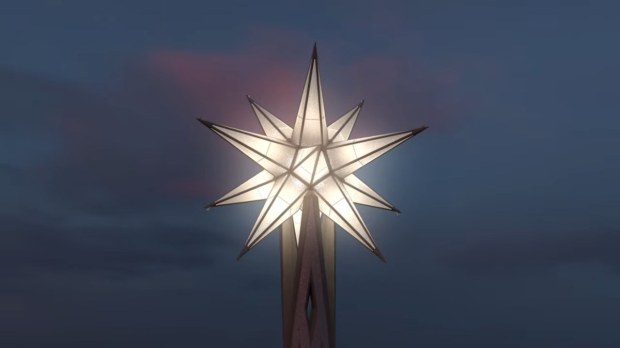Nations shall walk by your light,
kings by the radiance of your dawning. – Isaiah 60:3
Gazing up in the night sky—far away from city lights and presuming clear weather—the average person can see about 2,000 stars, by a low estimate. Some 6,000 by a higher estimate.
Those thousands of stars we might see on one such night are just a fraction of the stars of the universe. A very tiny number of stars, in fact.
In the Milky Way galaxy alone, astronomers estimate there are 400 billion stars. That’s right, billion…with a “b.” In the universe today, which consists of 2 trillion galaxies, there are an estimated 200 billion trillion (no, that’s not a typo) stars.
Stargazing and truth-seeking
Wonder at the cosmos has always been an expression of truth-seeking. Human beings gaze up at the stars and we begin to realize our smallness and to ponder the meaning of our lives. Lorenzo Albacete, the priest and physicist says, “The stars are, of course, the symbols of infinity, of the eternal beyond, of the Mystery for which our hearts thirst.”
The Psalms sing of the majesty of the night sky:
When I see your heavens, the work of your fingers,
the moon and stars that you set in place—
What is man that you are mindful of him,
and a son of man that you care for him?
Yet you have made him little less than a god,
crowned him with glory and honor. (Psalm 8:4-6)
The Magi we celebrate today, those keen observers of the heavens, followed the signs of the stars. Following the one star, they travelled to pay the Infant Christ homage. Those who spent their time marveling at the heavens above, bent their knees to worship the God who made the stars, who was born as a baby in Bethlehem.
Looking down
The tragedy of today is that we have failed to be star-gazers. Lost in the lights of the city, the flashing of screens, and the clouds of doubt, people today feel more and more trapped. Worse still, those who once pointed so clearly to the skies – parents, friends, teachers and clergy – have often failed to direct our eyes to the heavens. We look down.
And the greatest tragedy is: it is no easier to understand our innermost selves than it is the cosmos. St. Augustine of Hippo writes,
“People travel to wonder at the height of mountains, at the huge waves of the sea, at the long courses of rivers, at the vast compass of the ocean, at the circular motion of the stars; and they pass by themselves without wondering…”
What a wonder it is that we should be at all! And how much more marvelous that our hearts be created for such noble things as knowledge and love!
Beginning to look up
To begin to look up again, we must, like the wisemen of old, be brave. We must be willing to set out. We must move beyond that which is comfortable, in search of what is glorious.
We must be willing to suffer, like travellers and pilgrims. The poet T.S. Eliot imagines one of the kings describing the trip to Bethlehem saying,
“A cold coming we had of it, / Just the worst time of the year / For a journey, and such a long journey.”
We must embrace the difficulty and hardship of Christian life as wayfarers, moving closer and closer to our journey’s end.
Finally, like the magi, we must be generous. We must put all that we have at the feet of Christ. We must offer him the gifts of our time spent in prayer and our money, given to the Church and to the poor. Pope Benedict XVI encourages us in this sacrificial way of living, saying,
“The world offers you comfort. But you were not made for comfort. You were made for greatness.”
The cosmos come to us
G.K. Chesterton, attacking the vague forms that transcendentalists love to identify as God defends the Christian teaching of the Incarnation saying,
“The wise man will follow a star, low and large and fierce in the heavens, but the nearer he comes to it the smaller and smaller it will grow, till he finds it the humble lantern over some little inn or stable. Not till we know the high things shall we know how lowly they are.”
Courage. Suffering. Generosity. These are the glories of the heart of humankind. Only human beings can be brave, can suffer heroically, can give so completely of themselves and find such purpose and joy,
God is not ethereal, as if lost in the stars above. As if he were far from us. Indeed he has come very near. This is the truth the Magi have learned, the great conclusion of their search. May every soul that raises her eyes to heaven, find the maker of the stars in the manger in Bethlehem.


